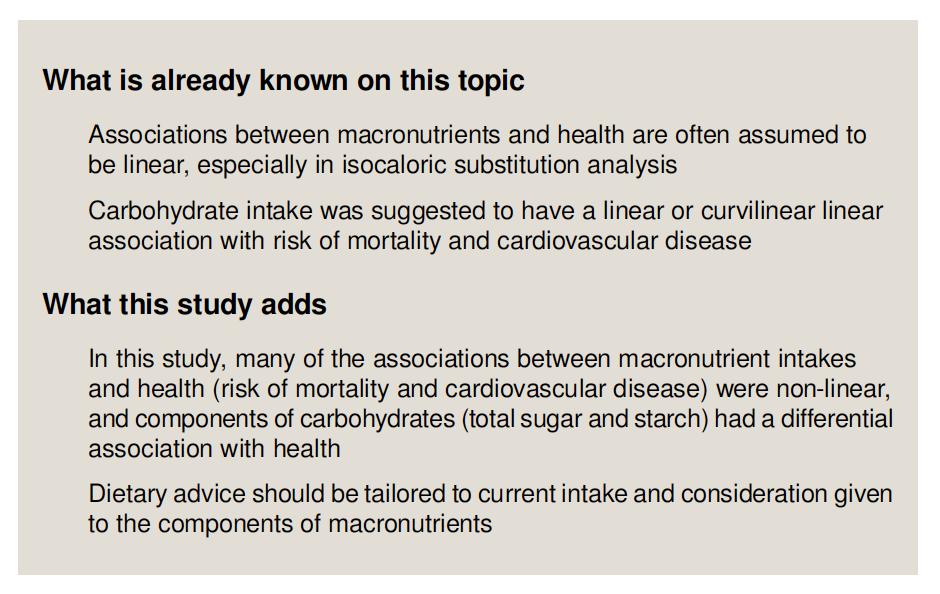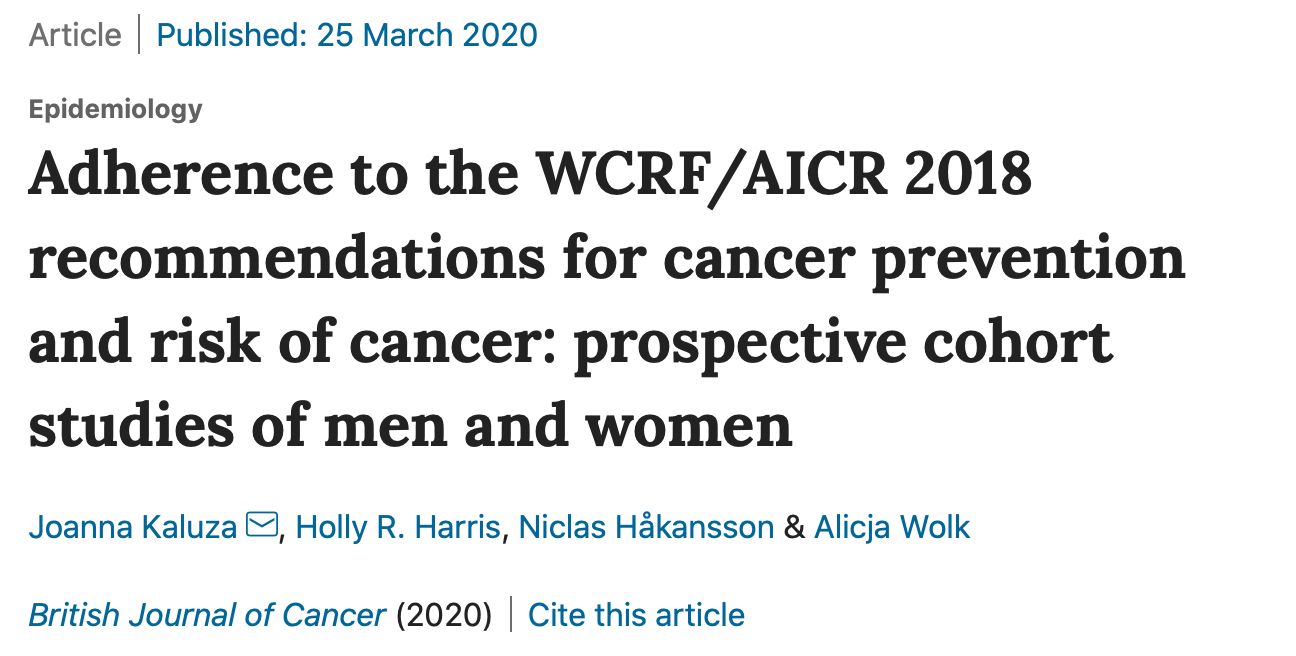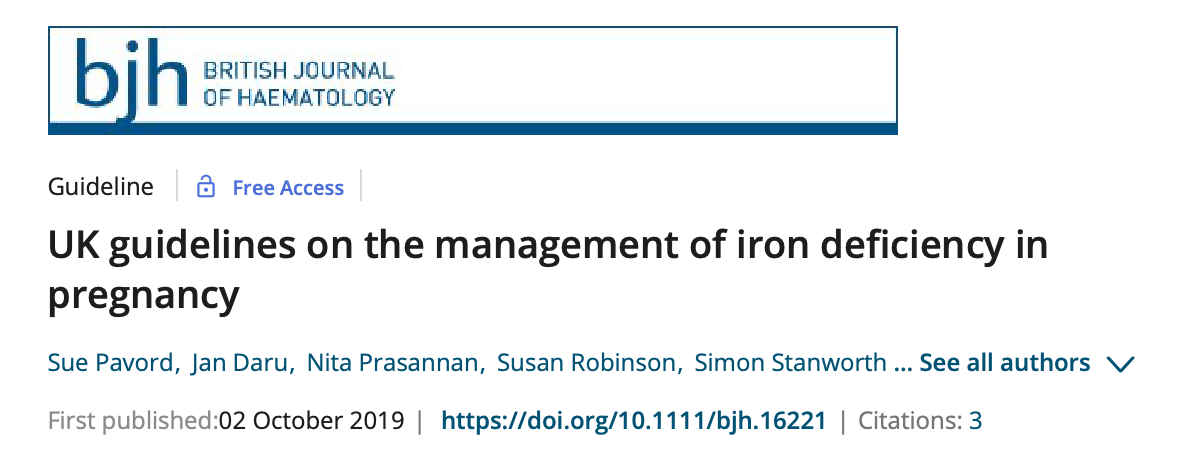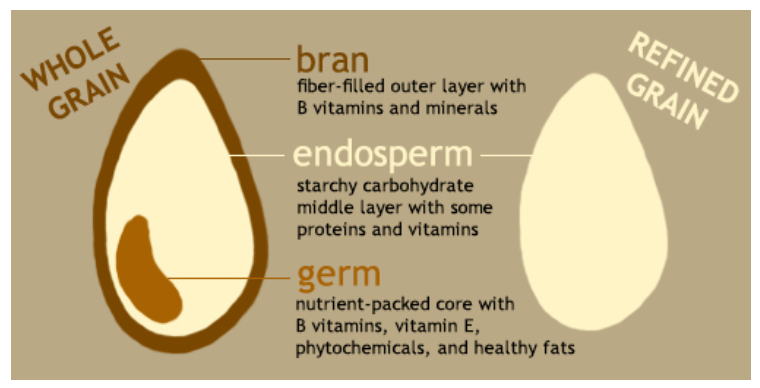A review of the week’s plant-based nutrition news April 5th 2020
Another week and hoping you are all remaining safe and well. Some more interesting studies to report.

MACRONUTRIENT INTAKE AND RISK OF CARDIOVASCULAR DISEASE (CVD)AND DEATH: A complex study examining the associations between macronutrients and their components on the risk of CVD and death from any cause. Participants were from the UK biobank study, a prospective population based study from the UK. 195 658 participants were included and followed for a mean of 10 years. During this period, 4780 (2.4%) participants died and 10724 (5.5%) had cardiovascular events.
The results reinforce what we know already although differ somewhat from results of prior studies. Not all relationships between intake and outcomes were linear. Carbohydrate intake showed a non-linear association with mortality with no association at 20–50% of total energy intake but a positive association/negative effect at 50–70% of energy intake. This positive association was mainly driven by sugar consumption, but not starch or fibre consumption. Intake of saturated fatty acids (SFA), monounsaturated fatty acids (MUFA), and PUFA were linearly associated with all cause mortality with MUFA consumption being protective but not saturated fat or PUFA. Replacing intake of sugar with starch, MUFA, or protein was associated with a lower risk of all cause mortality and CVD risk. Similarly, replacing SFA with MUFA or protein was associated with a lower risk of both total mortality and CVD.
So the take home messages remain the unchanged. The overall quality of the diet is more important than then individual components. Carbohydrates in the form of starches and fibre are associated with better health outcomes. Sugar and saturated fat consumption increases the risk of CVD and death. Replacing saturated fat with unsaturated sources of fat, mainly MUFA, improves health outcomes as does increasing fibre intake. Replacing saturated fat and sugar intake with protein can benefit health although this study did not compare animal vs plant protein. Previous studies have shown a detrimental effect of increasing amounts of animal protein on health.


CANCER PREVENTION GUIDELINES — DO THEY ACTUALLY WORK? The latest cancer prevention guidelines from the World Cancer Research Fund (WCRF)were published in 2018. There are nine recommendations, which together could reduce the risk of developing cancer by 40%. These recommendations include; eat a predominantly plant-based diet; limit red and processed meat; limit processed foods and sugar sweetened beverages; maintain a healthy weight; exercise regularly; limit alcohol; do not use supplements; mothers breastfeed if you can.
So do these recommendations actually work? This question was addressed in the highlighted study. Two Swedish prospective cohorts with 29,451 men and 25,349 women who were followed for 15.4 years were examined and adherence to the WCRF guidelines investigated — specifically body weight, physical activity, diet, alcohol and supplement use. 12,693 cancer occurred during the follow-up. Most people within the study were not adhering to the guidelines. However, in those that were adhering the most, there was a 12–15% reduced risk of developing cancer. When individual components were evaluated separately, both maintaining a healthy weight and being physically active reduced risk by 4–5%, lowering alcohol consumption was associated with a 6% reduction and eating little or no red and processed meat reduced the risk by 10%.
So these guidelines are effective at reducing cancer risk BUT we need to improve adherence to them. The UK would not fare much better if a similar study was conducted given most people are now overweight or obese and the bulk of our diet comes from ultra-processed foods. In addition, only 28% of adults and 18% of children consume 5 portions of fruits and vegetables a day.

IRON DEFICIENCY IN PREGNANCY: I would encourage all health professionals to read this new guideline from my professional society, the British Society of Haematology. Well written and practical although no surprise the diet advice emphasises red meat consumption!
So what are the implications for a vegan pregnancy? Although vegans don’t have an increased risk of iron deficiency anaemia, iron stores are lower than in omnivores. Outside of pregnancy this is probably of benefit but during pregnancy there may be an increased risk of iron deficiency anaemia (although this has not been consistently demonstrated). Nonetheless, regardless of diet pattern, iron deficiency is a common problem in pregnancy even if it does not result in anaemia. Iron deficiency with or without anaemia can result in adverse outcomes for mother and baby. Pregnant women need at least 27mg of iron daily.
In the UK we check for anaemia at booking and 28 weeks gestation. In select women measurement of ferritin may be indicated. A ferritin level less than 30ug/l in general indicates iron deficiency regardless of haemoglobin level. Once iron deficient, it is not possible to ensure repletion through diet alone and oral supplementation is required. Oral supplementation of elemental iron should be 40–80mg every morning on an empty stomach, with water or a source of vitamin C. If this results in side-effects then the frequency can be reduced to alternate days or a preparation with lower iron content can be used. Intravenous iron may be considered from second trimester onwards in select women. There may be an ongoing need for iron supplements after delivery especially if there had been significant blood loss.

To optimise iron from food, prioritise intake of greens, beans, grains, dried fruit and seeds. Germination and fermentation of grains and legumes improves the bioavailability of non-haem iron. Consume meals with a good source of vitamin C. Avoid tea and coffee within an hour of a meal.


WHOLE GRAINS AND HYPERTENSION: This is a small study investigating the association between whole grain consumption and hypertension in 944 working Japanese adults aged 19–68 years who had no hypertension at baseline and completed a 3-year follow-up survey. After 3 years, there were 86 cases of hypertension. Those who reported eating whole grains ‘sometimes or always’ had a 64% lower risk of developing hypertension compared to those who reported ‘never’ eating whole grains.
These results are consistent with previous prospective studies that have reported a protective effect of whole grain consumption for hypertension and a reduced risk of cardiovascular disease in general. In fact randomised studies have demonstrated the ability of whole grain foods such as whole meal bread, whole grain cereals and oats, to reduce both systolic and diastolic blood pressure. However, a Cochrane review from 2017 found insufficient evidence from randomised controlled trials to recommend consumption of whole grain diets to reduce blood pressure, mainly because these studies are small and of short duration. Whole grain consumption has also been associated with a lower risk of cancer in general but in particular with a significantly lower risk of colorectal cancer.

Why are whole grains so healthy? They are packed full of B vitamins, vitamin E, iron, copper, zinc, magnesium, antioxidants, and phytochemicals. Read more about whole grains here. Remember, to get the most nutrients from whole grains, it’s best to soak them before cooking.

OMEGA-3 FATTY ACIDS FOR PREVENTION OF CARDIOVASCULAR DISEASE: There has been much debate over recent years on the benefits of omega-3 fats from fish and supplements for the prevention of CVD. This Cochrane review provides an up to date analysis on this question. Here are the headline findings;
- Long-chain omega-3 supplements of at least 3g/day had little or no effect on all-cause mortality, cardiovascular mortality, cardiovascular events, stroke or arrhythmia. However, the data suggests that increasing long-chain omega-3 intake may slightly reduce coronary heart disease mortality and coronary heart disease events. These effects are very small. 334 people would need to take long-chain omega-3 supplements for several years for one person to avoid dying of coronary heart disease, and 167 people would need to take omega-3 supplements to avoid one person experiencing a coronary heart disease event.
- The only benefit for CVD risk found was that long-chain omega-3 supplements may reduce triglyceride levels by 15% in a dose-dependent way.
- There is insufficient evidence to support increasing the consumption of oily fish in the diet for CVD prevention.
- Increasing intake of the essential short-chain omega-3 fatty acid found in plant foods, alpha-linolenic acid (ALA), probably makes little or no difference to all-cause mortality, cardiovascular mortality, coronary heart disease mortality and coronary heart disease events. However, increased ALA intake may slightly reduce risk of cardiovascular disease events and arrhythmia. The effects are small; 500 people would need to increase their ALA intake for several years to prevent one person experiencing a CVD event, and 91 people would need to increase ALA to prevent one person experiencing arrhythmia.
Overall, there is insufficent data to support the role of long and short chain omega-3 fat supplementation for cardiovascular health. Of course, getting enough omega-3 in the form of ALA in the diet is essential when consuming a plant-based diet. This daily requirement can easily be met with a tablespoon of flaxseeds or chia seeds a day or 30g of walnuts.
If you have found this article useful, please follow my organisation ‘plant-based health professionals UK’ on Instagram @plantbasedhealthprofessionals and facebook. You can support our work by joining as a member or making a donation via the website
